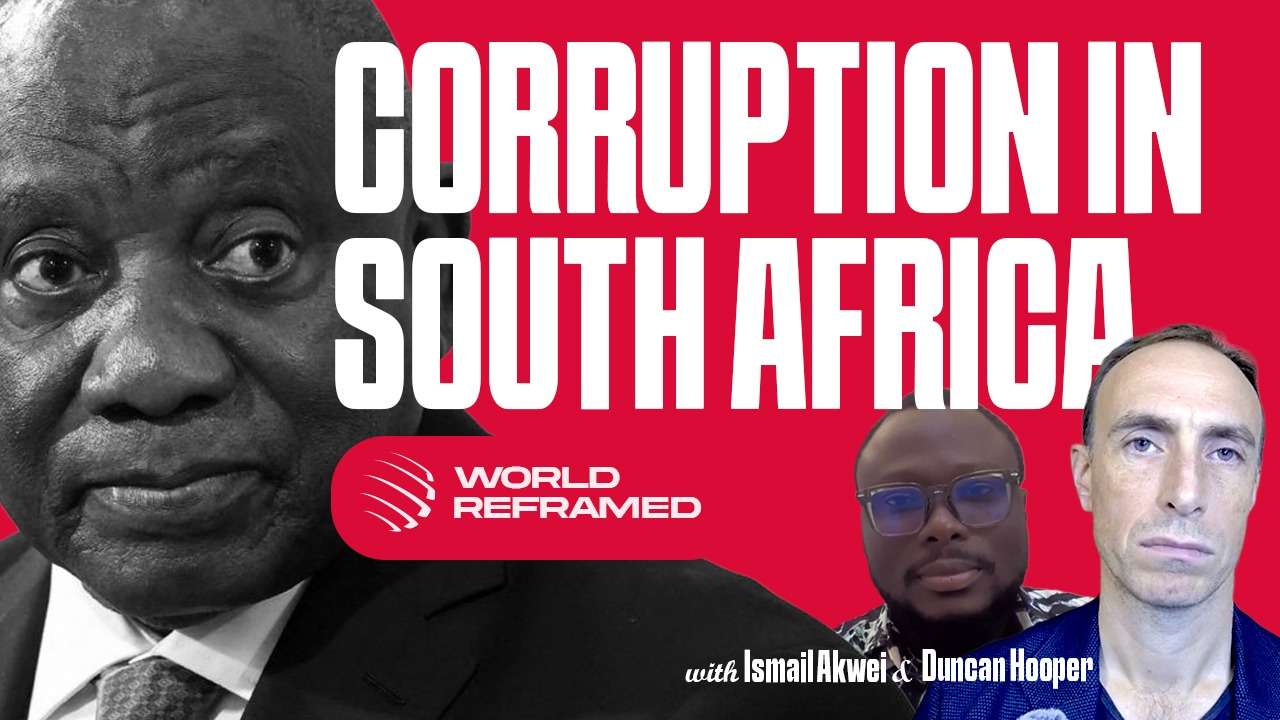Inside South Africa’s deepening corruption crisis: World Reframed 17

South Africa's crisis of corruption, collusion, and organised crime is allegedly reaching the highest levels of power.
The country is confronting a new wave of revelations that cut to the core of its democracy. This follows revelations from the Madlanga Commission, a state inquiry that is exposing deep ties between politicians, police officials, and a criminal syndicate known as the Big Five Cartel.
The Attempted Assassination of Brown Mogotsi
Brown Mogotsi, a businessman with a criminal past who claims to have been a state informant, reported surviving an assassination attempt when a car said to be his was found riddled with bullets hours after contacting the Madlanga Commission about testifying in its corruption inquiry.
Police launched an attempted murder investigation, but the early details were murky. No injuries were recorded. Mogotsi initially failed to make a formal report, and he became unreachable, raising questions about whether the attack was real or staged.
Latest developments have since confirmed that Mogotsi was indeed targeted. On Monday night in Vosloorus, Gauteng, his vehicle was struck by approximately 11 bullets in what police describe as an apparent hit attempt. Mogotsi later met with investigators from the South African Police Service (SAPS), accompanied by his lawyers, to provide a statement.
Authorities have seized his digital devices and vehicle for forensic analysis, while the Madlanga Commission has expressed concern for his safety. Discussions are reportedly underway for possible witness protection ahead of his expected appearance before Parliament’s ad-hoc committee.
The attack reinforces how dangerous it has become for individuals connected to corruption inquiries, where intimidation and violence often shadow those willing to testify.
The Madlanga Commission and the Big Five Cartel
The Madlanga Commission, chaired by former Constitutional Court judge Mbuyiseli Madlanga, was established by President Cyril Ramaphosa to investigate the alleged infiltration of South Africa’s justice system by organised crime.
At the centre of the inquiry is the Big Five Cartel, a powerful criminal syndicate accused of collaborating with politicians, police, and business figures. The network is believed to be linked to more than 100 assassinations targeting political leaders, whistleblowers, and community activists.
Investigators say the killers operated with such confidence that they often reused the same weapons, making it easier to link crimes but harder to secure arrests. A special police task force that began to uncover the cartel’s operations was reportedly disbanded before completing its work.
Political Fallout and National Alarm
The scandal has already implicated high-ranking officials. Police Minister Senzo Mchunu has been placed on special leave amid allegations of participating in the cover-up of the cartel’s activities.
President Cyril Ramaphosa has warned that the allegations threaten the credibility of South Africa’s law enforcement institutions and could undermine public confidence in the rule of law.
The commission’s hearings have become a focal point of national attention, revealing the extent to which organised crime may have penetrated state structures.
The crisis draws parallels with the findings of the Zondo Commission, which previously detailed large-scale corruption and state capture under former President Jacob Zuma.
That investigation revealed how politically connected business elites manipulated state contracts for personal gain. Despite extensive evidence, few of the implicated figures have faced prosecution, leaving South Africans sceptical about whether new inquiries like Madlanga’s will yield lasting change.
While South Africa is not among Africa’s most corrupt countries, its size, wealth, and democratic institutions make its corruption scandals more visible and far-reaching.
Click here to watch our previous episodes
World Reframed is produced in London by Global South World, part of the Impactum Group. Its editors are Duncan Hooper and Ismail Akwei.
ISSN 2978-4891
This story is written and edited by the Global South World team, you can contact us here.